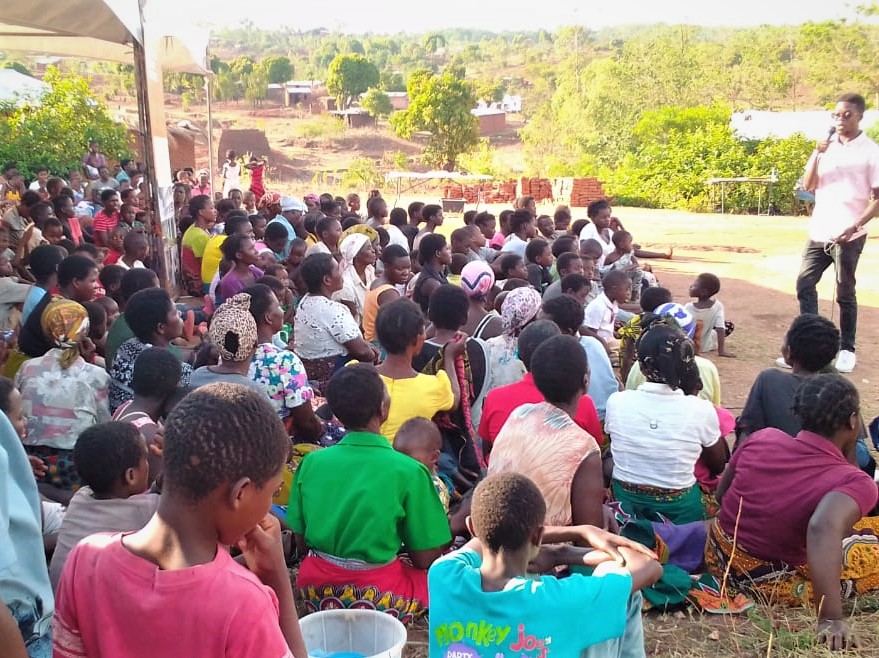In Malawi – a country in Southeastern Africa with a mostly rural population – women and their families are exposed to very high concentrations of smoke through a daily household chore: cooking. The PAMODZI (meaning ‘together’ in Chichewa) project is bringing together community members and researchers in working towards solutions to this health threat.
In the village of Makanjira in Mpemba Region, set in the hills outside Blantyre City, researchers and residents are sharing knowledge about the sources, levels and effects of smoke in the village. Taking this learning forward, residents are exploring possible actions to reduce the harmful effects of smoke exposure for people living in the area.
Researchers are working with the community to understand how the growing body of knowledge on health impacts and interventions of household air pollution in the global health context touches down in a local rural setting, and to identify where researchers need new approaches to understand the level of community awareness. “Just because we know the dangers at the global level, doesn’t mean we are changing behaviours at the local level,” said Dr. Sepeedeh Saleh, a public health doctor and the principal investigator in the research project.
“Information on the dangers of household air pollution is not mainstream yet, and attention to the long-term impacts of exposure to air pollution does not rise above the day to day hardships of many people,” Dr. Saleh explained.
The project aims to understand changes in people’s attitudes towards household smoke before and after the PAMODZI project, and engage them in long term interventions. “If we start by listening together with the community, it will help with the uptake of interventions in the long-term,” posits Henry Sambakunsi, a research assistant working closely with the community.
Researchers set up air quality monitoring to understand indoor exposures to carbon monoxide and PM2.5 for primary cooks and other family members. This work is ongoing and will be published shortly, but preliminary results found very high levels of exposure for primary cooks.
However, during the initial community consultation researchers found that community members associated chronic health effects of smoke mainly with tobacco – rather than household air pollution. Acute, short-term impacts of household smoke including difficulty breathing, watery nose and irritated eyes tended to be viewed as a normal part of day-to-day life – rather than part of a global health epidemic.
 In a community meeting involving dancing, music, and an exhibition, community members came together to talk about the project, allowing opportunities for questions and discussion, and sharing thoughts. The event was bustling and vibrant, with many young people in particular attending the video show.
In a community meeting involving dancing, music, and an exhibition, community members came together to talk about the project, allowing opportunities for questions and discussion, and sharing thoughts. The event was bustling and vibrant, with many young people in particular attending the video show.
The BreatheLife video, describing the path of air pollution in the body, was adapted and translated into Chichewa (the national language in Malawi), and screened at a video show in the evening, helping to further explain the health effects of smoke and the rationale behind the project.
After the event the Chief of Makanjira remarked, “At first we thought that this was just a small issue but now we see that it is serious.” The video stimulated much conversation about the effects of smoke, and the project has since gained traction in the village.
Some interventions under consideration in Makanjira include the distribution of locally made cleaner burning cookstoves, and outreach to advise community members to cook outside or in a well-ventilated area of the house.
Lessons from the PAMODZI project are already beginning to emerge including the need to engage ethnographers and anthropologists early in community-based health research projects, the importance of building relationships with the community early and with a long-term view of community ownership of interventions, and utilizing existing community structures.
The next steps in the project – village discussions following successful participatory theatre workshops to debate possible approaches – are now underway. The prospect of clean air is a unifying, and now increasingly achievable aspiration for all in this special corner of Malawi.
Photos and video translation courtesy of PAMODZI project.